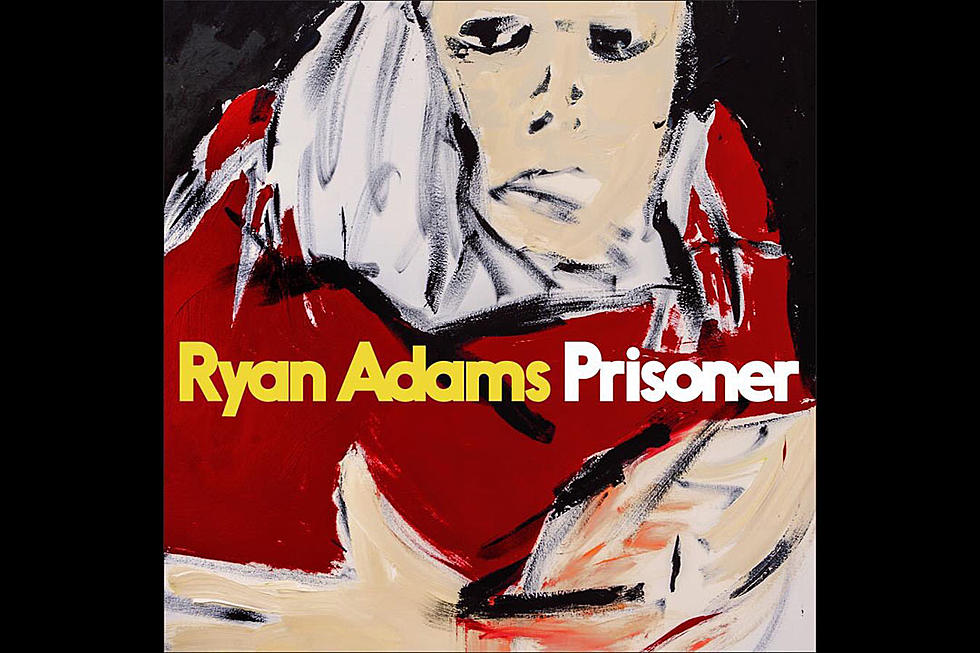
Ryan Adams, ‘Pinball Wizard, Cat Lover, Genius’
When he was just 26 years old, Rolling Stone magazine ran an article that described him as “the Kurt Cobain of alt-country, the new Dylan, hyperprolific, too prolific, a drunk, a mess, a shambles, a control freak, a genius.”
Thirteen years later, that list would likely look very similar for Ryan Adams -- minus a few of the less polite labels. Today, we’d add “Twitter expert, cat lover, comic book enthusiast, pinball wizard, multi-genre-spanning mastermind.” From his days with Whiskeytown in the '90s to his seemingly never-ending cycle of new tunes in 2014, Adams has earned our immense respect and his music our strict attention and devotion.
Adams’ prolificacy started much earlier than Whiskeytown, though. In that same Rolling Stone feature that called him “a genius,” Adams tells writer Mark Binelli, “I started writing as soon as I could type ... My grandmother, Geemaw Dedmond, had this old typewriter. I started writing short stories when I was eight. I was really into Edgar Allan Poe. Then later, when I was a teenager, I got really hard into cult fiction: Hubert Selby Jr. Henry Miller. Jack Kerouac, big-time ... there wasn’t much to do [where I grew up]. There was skateboarding. Vandalism. Then you go inner. At least I did.”
This year, in an interview with Buzzfeed, Adams explains what "going inner" entailed: “I was not some pretend goth. I really would go into the woods at night alone, and be there by myself and sit in a tree in total darkness ... I’d come out of the f--king woods wearing a black cape. I was that guy. I was totally living in a different world.”
Whatever affected his childhood, and his teenage years, and his early adulthood -- it’s created a foundation that has led Adams to become one of the most important singer-songwriters of this or any generation.
Take a look at his early solo material; ‘Heartbreaker’ might contain the purest alt-country track of the last 20 years in the form of ‘To Be Young (Is to Be Sad, Is to Be High),’ written by a 25-year-old Adams.
He followed that up with 2001’s ‘Gold,’ an album that featured the unbelievably catchy ‘New York, New York,’ ‘Firecracker’ and ‘Answering Bell.’ But, the crowning achievement of that record -- maybe even the crowning achievement of his career -- is found on track No. 7, ‘When the Stars Go Blue.’ Even if you haven’t heard Adams sing this song, you can likely hum along to the chorus thanks to country artist Tim McGraw and his rendition of it on his second greatest hits collection. But it wasn’t just McGraw who was inspired; six years after the song came out, Adams told the AV Club, “Another year will pass and I’ll hear like, ‘Oh, so-and-so is doing ‘When the Stars Go Blue.’ It’s like the song that wouldn’t go away.”
From there, his catalog grows steadily, with at least one release hitting the streets each year, up until 2005 when he gave fans ‘Cold Roses,’ ‘Jacksonville City Nights’ and ’29’ all within 12 months.
You can follow his career all the way to the culmination of his masterpiece, that of this year’s self-titled record -- his 14th solo LP. With 11 tracks of flawless rock and roll, Adams has never sounded more like himself; he’s not distracted, he’s not focused on anything other than the music at hand, and the fans benefit because of it.
But, any story celebrating the career of Adams has to come back around to his early work with Whiskeytown. While it’s easy to sit back and discuss his immense talent today, back in 1995, Adams was creating alternative country in the same vein as the genre's forefathers, Uncle Tupelo. On the band’s debut, ‘Faithless Street,’ Adams hearkens images of Jay Farrar while putting his own unique spin on what he would mold into his signature, yet always evolving, sound.
And while Adams has constantly crossed the lines of alternative rock and alternative country in nearly everything he's done, he also has a twisted taste for punk rock and heavy metal. Aside from almost always sporting a denim jacket laden with hard rock patches or wearing a Black Flag t-shirt when performing on 'Ellen,' musically, he's put his money where his mouth is, so to speak. In 2010, Adams released the fan-coveted 'Orion,' a sci-fi metal concept album. Then, in 2013, Adams formed a project called Pornography and released '7 Minutes In Heaven,' seven songs, each a minute long, each with blazing punk rock energy. And that's not it; just this year, in his ongoing Pax Am 7-inch vinyl series, he shared the massive 7-inch, '1984' -- massive because somehow, someway he fits 10 tracks of some of the best punk rock we've heard in a long, long time onto such a small disc.
Above it all -- whether you enjoy Adams for his alt-country roots, his obvious appreciation for unadulterated rock and roll, his uncanny understanding of metal and punk -- the man is dedicated to his craft, and it shows. He cares about his music and he cares about the listening experience of his fans. Take for instance his self-titled record; the MP3 download that accompanied the vinyl edition didn't just include digital tracks -- it included digital tracks of the actual rip of the vinyl record. That means when you press play on your iPhone, you can hear the needle hit the wax and slip into the groove.
And the best part about Adams, besides our just laid out missive?
It has to be his constant influence in the music scene. Ever since wannabe musicians heard 'Midway Park' in 1995, Adams has been a model musician -- not because of how he acts or what he does (though, you should take note), but because of his music.
More From Diffuser.fm









